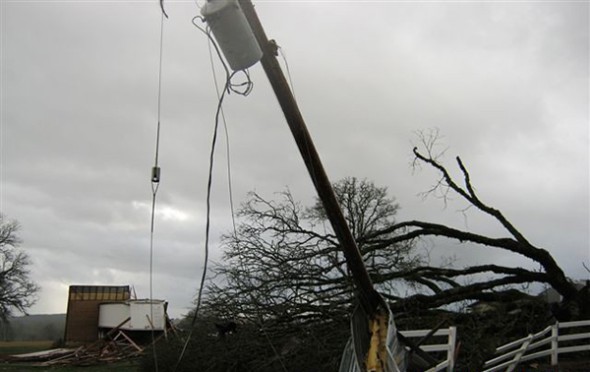CUB Protects Customers from Cost and Risk in PGE’s Rate Case
Posted on May 3, 2022 by Mike Goetz
Tags, Energy

photo/image by: Oregon Department of Transportation - flickr.com/photos/oregondot/5263399813; CC BY 2.0 - creativecommons.org/licenses/by/2.0/legalcode
Regulators have approved CUB’s proposal to end residential deposits for Portland General Electric (PGE) and consider refunding overpayments customers made on the closed Boardman coal plant. On April 25, the Oregon Public Utility Commission (PUC) issued its final decision in PGE’s general rate case. The decision includes several victories for CUB and for PGE’s residential customers.
Lasting 14 months, this rate case was long and often contentious. PGE requested a $59 million rate increase initially (the company filed a simultaneous power cost update, bringing the total filing to $80 million.) But the rate increase was whittled down to $10 million. Further, at CUB’s request, PGE agreed to stop charging residential customer deposits to establish electricity service. Deposits are generally used when the utility believes a residential customer is not creditworthy. They contribute to energy burdens and housing insecurity, while doing nothing to improve service.
A major issue in this case was PGE’s treatment of costs associated with the early closure of its Boardman plant. Boardman was Oregon’s only coal plant and closed at the end of 2020. CUB, PGE, and several other parties agreed to the closure plan in 2010. While it was initially slated to close in December 2020, PGE was able to close the plant down in October of that year. However, PGE’s rates included Boardman costs past the October date. Those costs stayed on PGE’s books until the final verdict was reached in this rate case.
To track the benefits associated with Boardman’s early closure from October 2020 to April 2022, CUB and the industrial customer representative filed a request to track these overpayments so they could be returned to customers. In this rate case, the PUC approved tracking these costs. While this is a victory for PGE’s customers, the amounts that will ultimately be passed back remain to be seen. The PUC ordered that the payments be passed back if PGE is found to have earned above authorized levels after Boardman’s closure.
Additionally, PGE proposed to use this rate case to capture costs associated with its Faraday hydroelectric facility on the Clackamas River. Faraday recently underwent significant upgrades. While the plant was initially considered in this rate case, construction delays eventually exceeded the deadline by which PGE could use the case to recover Faraday’s costs. PGE sought special treatment to include Faraday in an extended version of this case. This would make for highly irregular ratemaking and CUB was strongly opposed. In the end, the PUC sided with CUB and other stakeholders. PGE will have to file another rate case to recover Faraday’s costs.
Finally, PGE sought big changes to a mechanism it uses to recover costs of repairing its system after large storm damage. Prior to this case, PGE received a given amount each year to offset these costs. That amount was updated each time PGE filed a rate case to reflect recent historical costs. The changes PGE wanted would have shifted a substantial amount of cost and risk onto customers. CUB put forth a more reasonable proposal that appropriately shared cost and risk between PGE and its customers. The PUC ultimately adopted CUB’s proposal.
This was a long and complex case with a lot of money at issue. The PUC’s order was thoughtful and well-reasoned. CUB applauds the PUC for working hard to protect PGE’s customers while also being fair to the utility.
To keep up with CUB, like us on Facebook and follow us on Twitter!





05/02/22 | 0 Comments | CUB Protects Customers from Cost and Risk in PGE’s Rate Case